Japanese マナー
マナー (from english “manner”) stands for the rules of behavior on japanese public transportation.
Coming from the US or Europe the silence in trains is quite suprising. The rule not to talk on the cellphone is observed by nearly everyone. And nearly everyone on the train is “connected”. To me this is tranquility is a mayor achievment. But education does not stop with this simple rule.
As we see in this poster from on train station, seats should be given to the elderly and not only cellphone should not be used, but also headphones could disturb other passengers. And of course speaking out loud is not acceptable.
The following poster illustrates the dangerous zones in public transportation where your behavior can be hazardous to others.
Due to the millions of people using the subway system every day lining up in front of doors will ease the traffic flow.
And you should give priority to handicapped people and mothers with children.
I was actually surprised to see so many posters, as I consider the Japanese to be very disciplined and considerate in general.
The main focus of the マナー signs in a broader sense is dedicated to train doors and the use of escalators.
You do not rush in or out of trains, whatever your motivation might be…
And you do not rush an escalators.
There are certain rules for using the escalator, which this family does not observe…
First of all you should hold the rail, as seen in the poster. Secondly you hold your belongings on the escalator in a proper way.
This gentleman follows the rules (and our family did not).
We can´t see what kind of shoes the family used on the escalator. But it is dangerous with the wrong ones like sandals!
Luckily they do not seem to be drunk or carrying much luggage, because this is also a dangerous. Anyway, to be drunk is a bad idea as you might fall on the tracks.
And do not have the idea to dive for your belongings if you drop them on the tracks. This is the job of the friendly station manager…
I will leave it at that, but I wonder about the reasons for this extensive guidance. Do people stop thinking when they use public transportation ? But the fact is, that some of the topics mentioned on the posters are constantly voiced through the speakers.
A more serious case is of course the following warning of sexual harassment (“Chikan desu”). Lately women only cars have been introduced during rush hours.
So, once you get to your destination the last sign you might see is the following, which you hopefully observed from the start. What a nuisance to other passengers if you have to look for your ticket. Have a safe ride if you ever come to Tokyo !
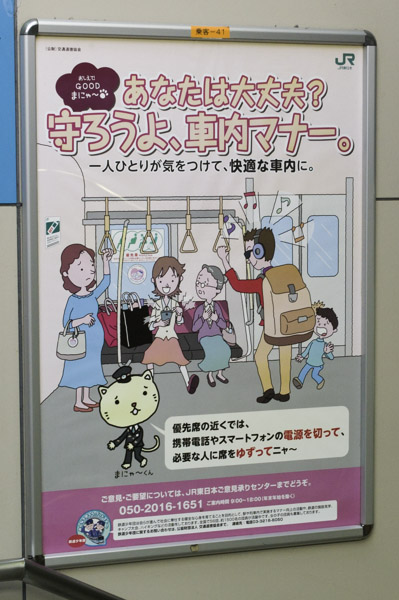
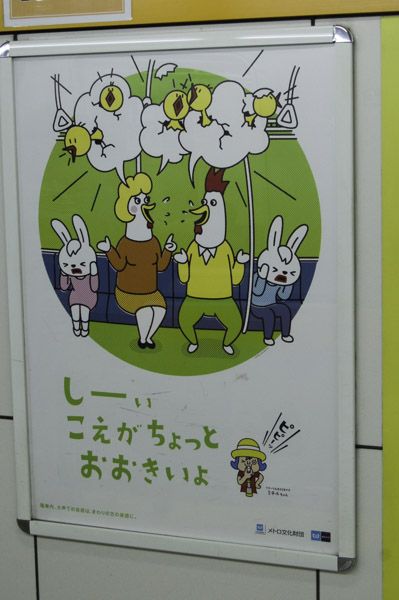
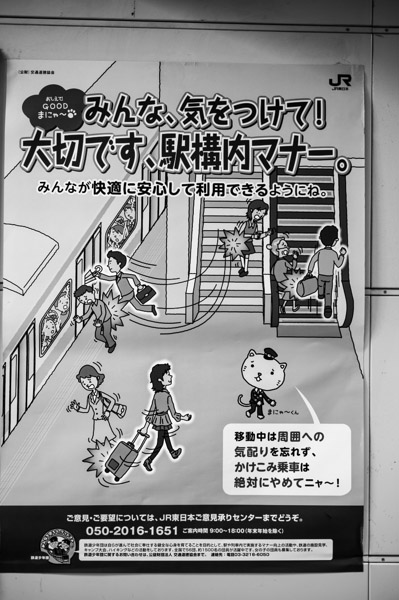
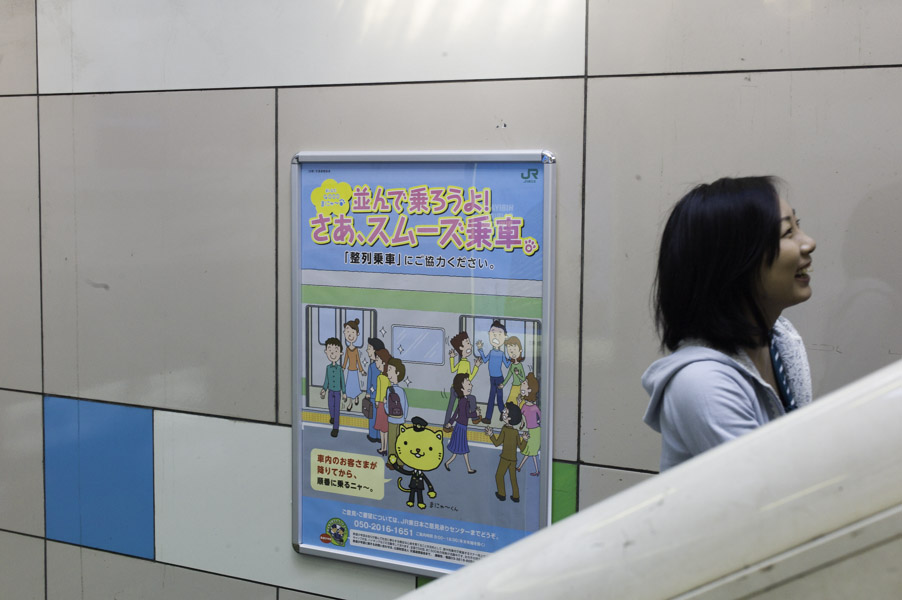
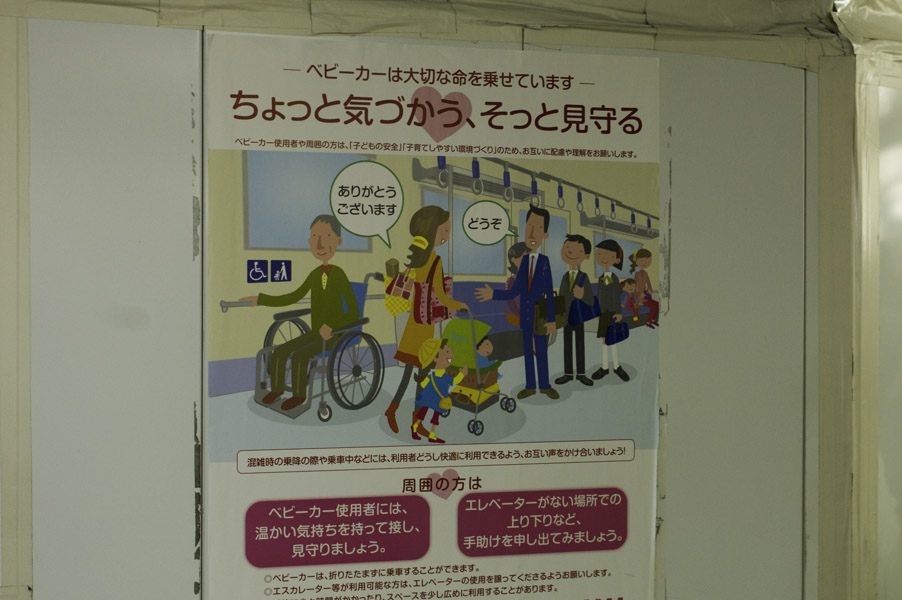
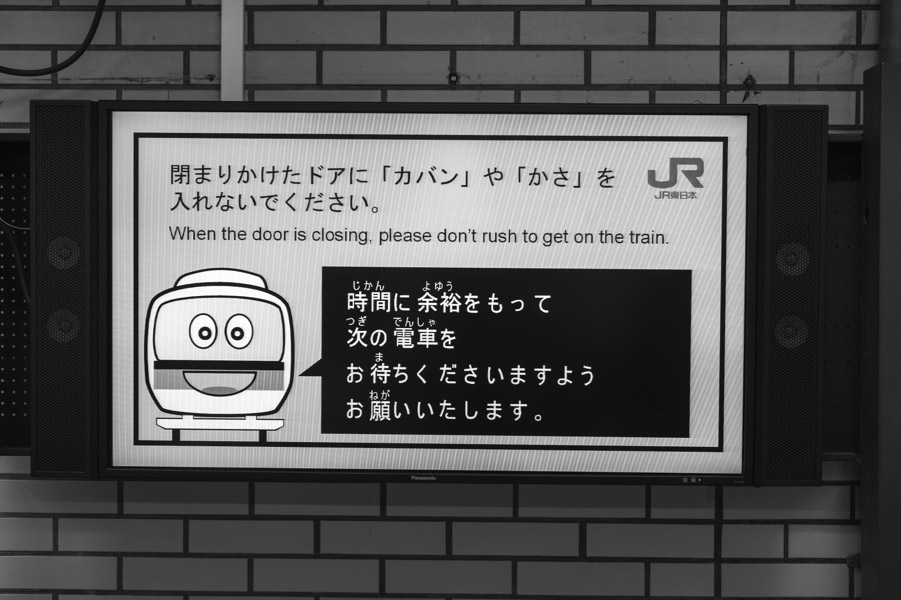
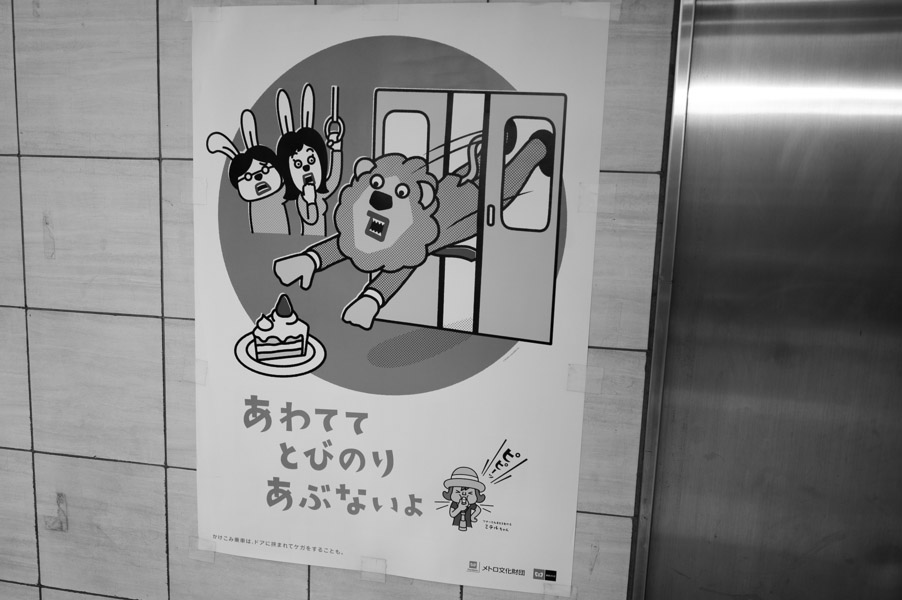
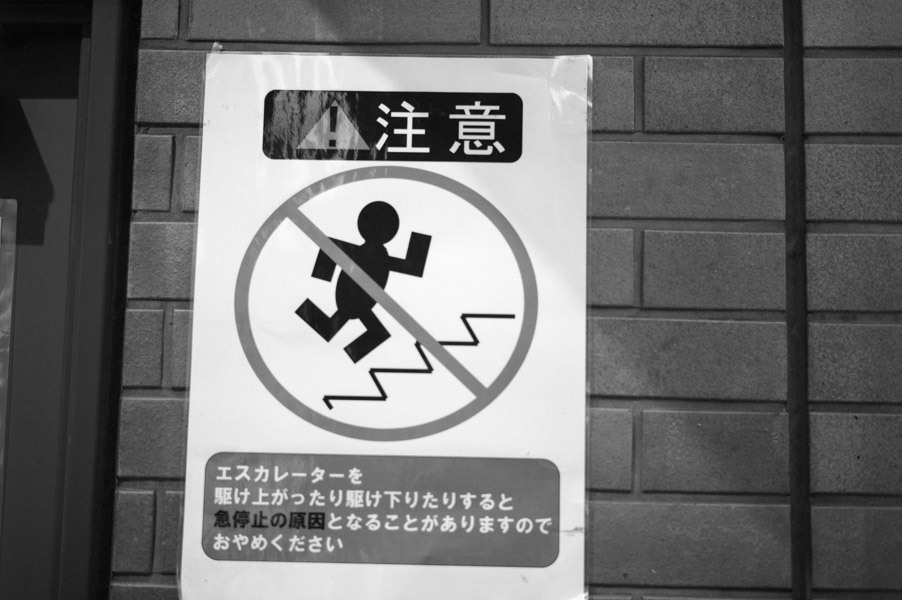
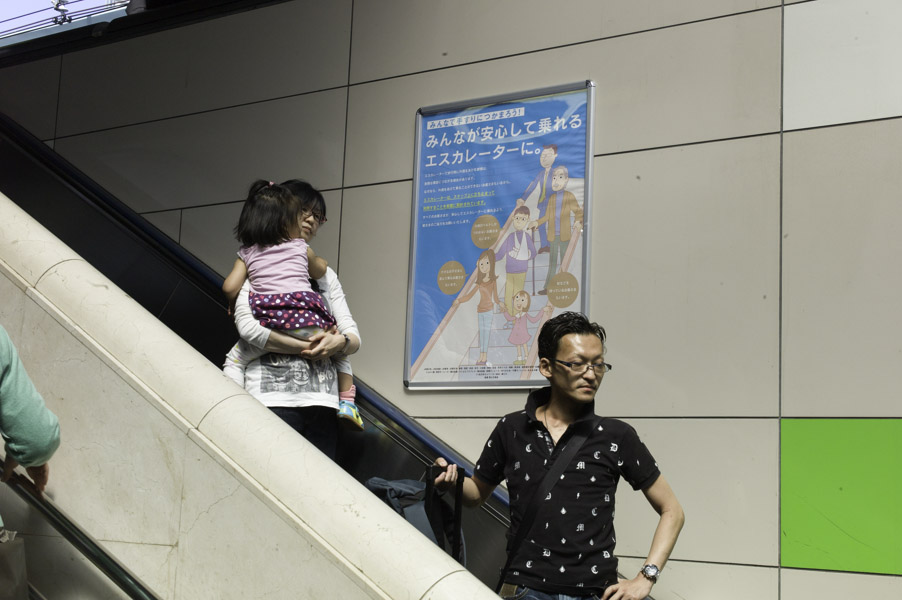
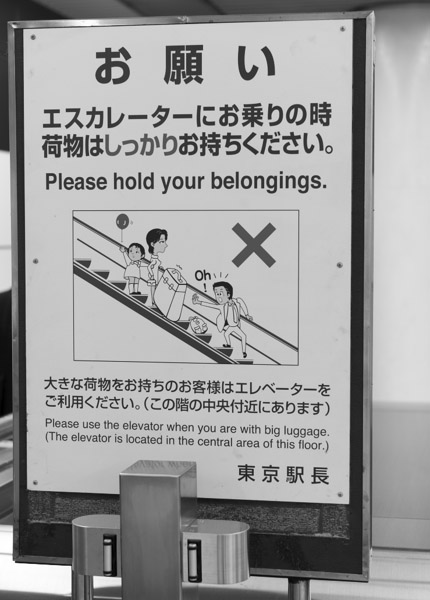
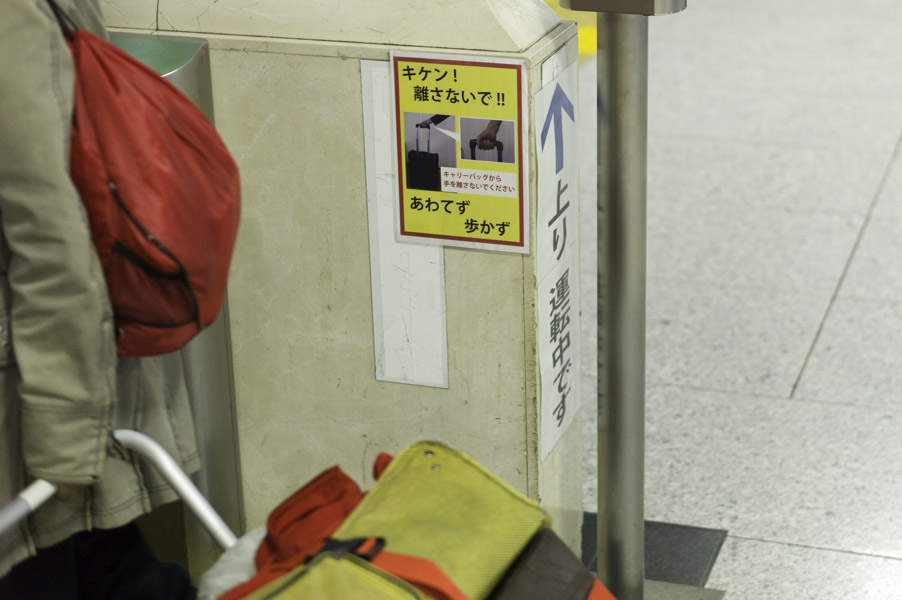
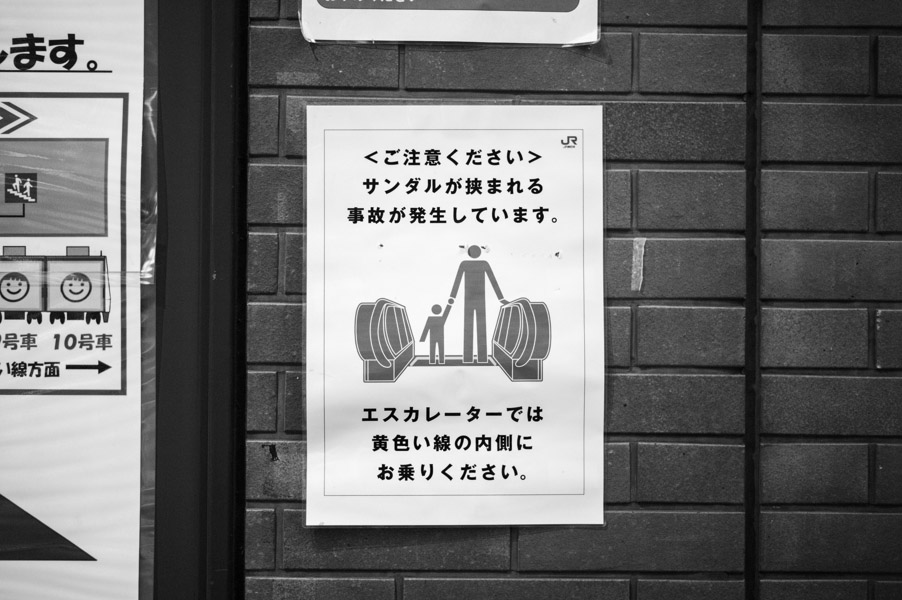
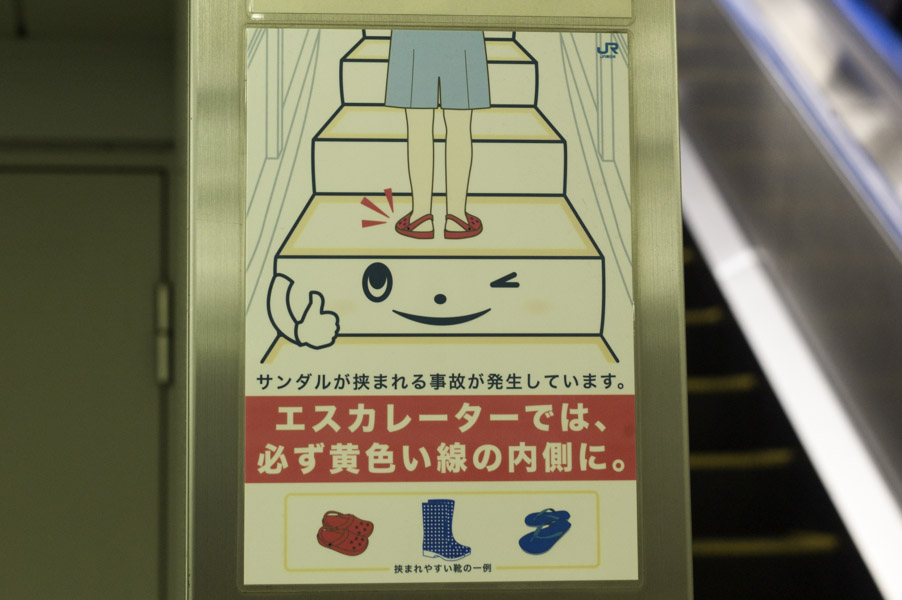
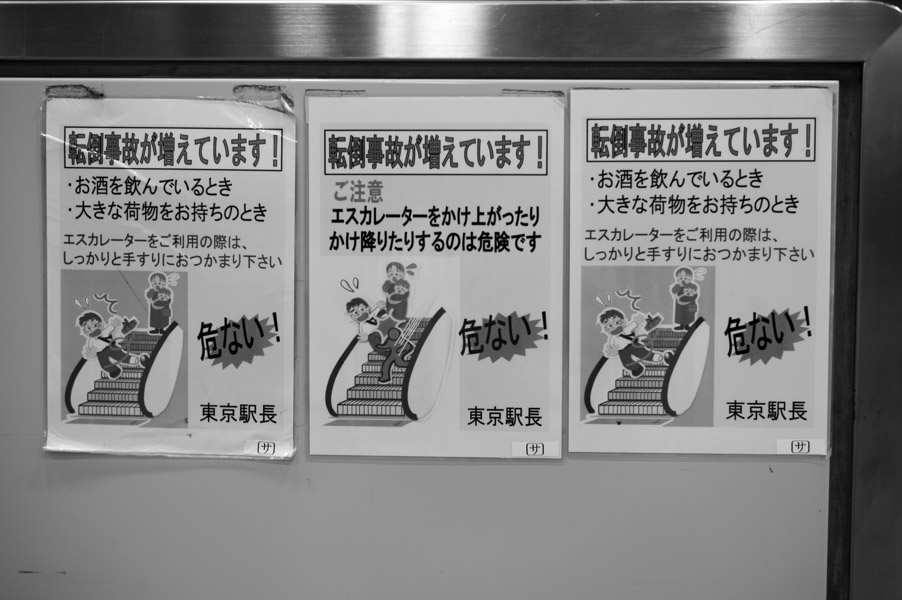
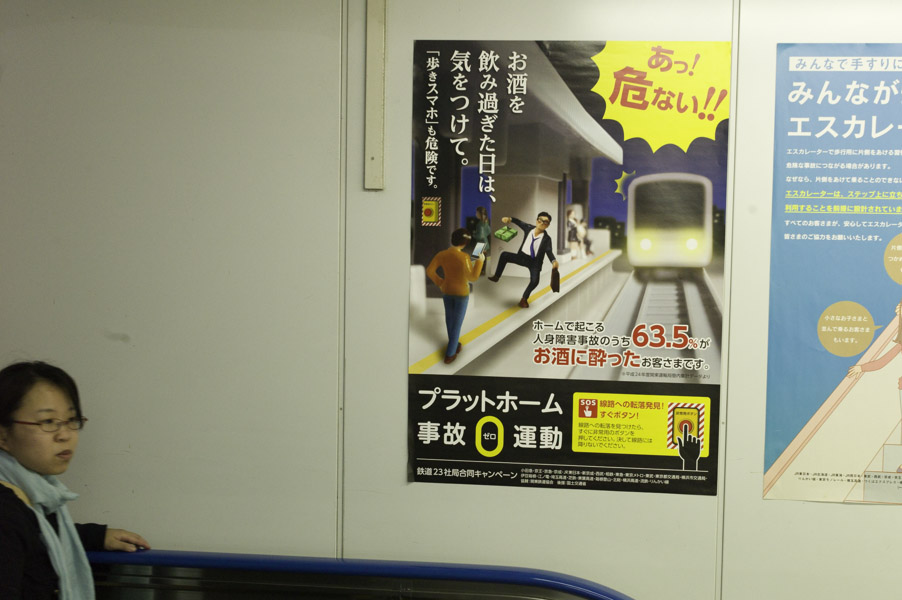

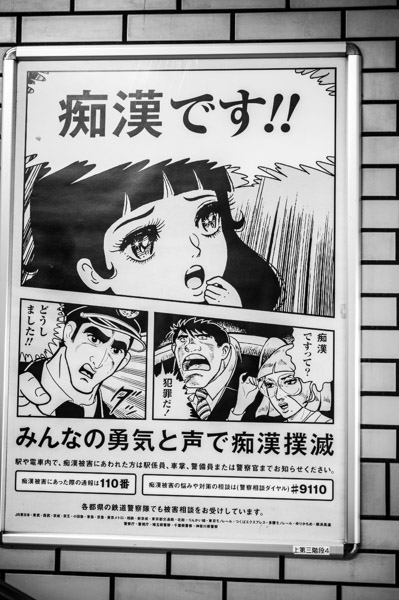
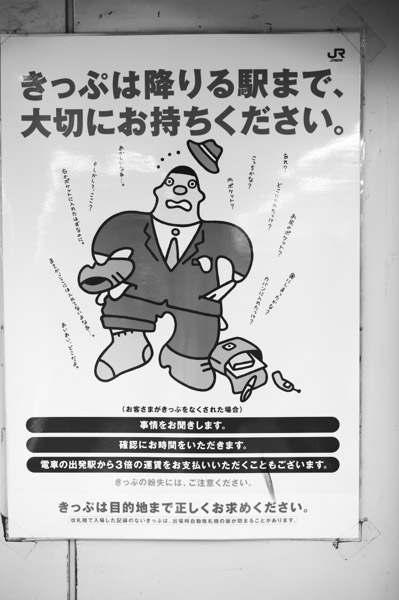
Leave a Reply